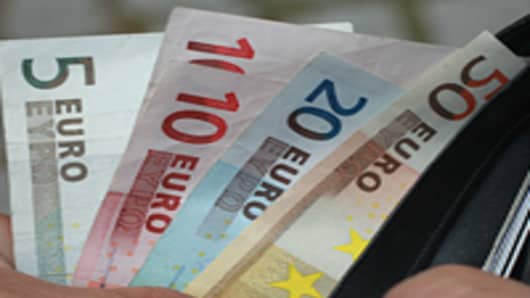The most recent round of currency battles is likely to end in a whimper rather than a bang, with major liquidity injections from central banks in the countries where the globe's most important currencies originate the main reason they have stalled rather than sparked off, according to HSBC.
"With almost all countries seemingly having a preference for a weaker currency, the result has been a stalemate where no country gets what it wants. If the 'currency wars' were a sporting fixture, they would be described as a no score draw," HSBC's currency strategists wrote in a research note.
Governments across the developed world have not embarked so much on all-out war as an extended game of chicken, with very few now actually allowing their currencies to follow a "free float" policy.
(Read More: If US Goes Over 'Fiscal Cliff,' Dollar Could Fly)
A weaker currency can help boost exports, which many developed countries need to keep growing their gross domestic product as internal spending stagnates or falls.
The various quantitative easing programs by the U.S. Federal Reserve, the Bank of England and the European Central Bank (ECB), among others, may not have explicitly been aimed at keeping currencies at manageable levels, but they have had that side effect, according to HSBC.
The euro, which has stayed stubbornly at around the 1.30 level against the dollar for close to six weeks, since the ECB announced its bond-buying program, is a prime example.
Currency volatility, as measured in the 3-month Global Hazard Indicator which includes the euro, yen nd dollar, peaked at the end of 2008 at around 34 percent, and is now back to around 10 percent, below the long-term average of 13.2 percent.
(Read More: Prepare for New Currency Wars After QE3: Analyst)
This drop in volatility has been echoed in emerging market currencies, where volatility is now down to 2007 levels.
"While explicit currency wars have so far been averted, every government now pays close attention to the exchange rate, and even those purporting to follow a free-floating exchange rate policy have used mechanisms designed in part to influence the exchange rate," Bloom pointed out.
"No country, with the possible exception of Sweden, is unconcerned about their currency's level or movements."
Some countries like Norway which still maintain a free float without quantitative easing have used other mechanisms such as lowering interest rates to offset strength in their currency.
(Read More:The Germans Are Coming for Their Gold)
Several key emerging markets countries, including Brazil and China, expressed concern over the Fed's most recent round of quantitative easing because of the possible effect on currencies, with Brazil's Finance Minister Guido Mantega dubbing the policy "selfish."
Possible future triggers for volatility increasing in the currency markets again include the U.S. election, a worsening of the euro zone debt crisis and changes to Chinese monetary policy, according to HSBC.
"Those needing to protect against adverse FX moves using the options market should act sooner rather than later," they warned.


